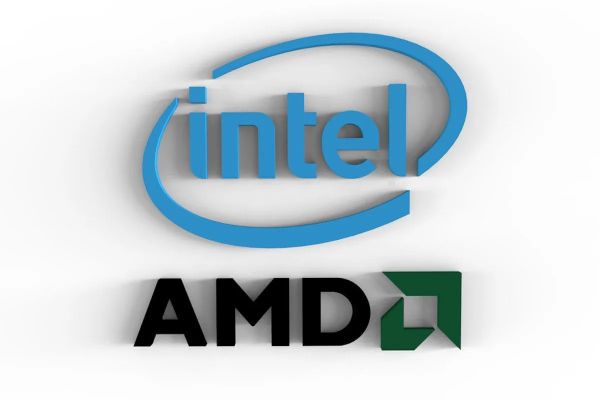Government of China has strongly recommended its departments and agencies to use desktop and portable computers equipped with domestic central processing units (CPUs) and operating systems in order to enhance reliability. The stated goal is to increase reliability.
The new Chinese law is a kind of a «warning» for AMD and Intel. Foreign CPU manufacturers are now prohibited from participating in Chinese government tenders, which some observers have called a tactic to attract investments.

In Beijing, it has been stated that central, provincial, and municipal authorities must comply with the new security and reliability requirements in the procurement of desktop and portable computers, as stated in two joint statements from the Ministry of Finance (MoF) and the Ministry of Industry and Information Technology (MIIT).
The press offices of both ministries have stated that local government authorities at the county and township levels are not obliged to follow the new procurement rules. The statements were quietly published on December 26, 2023, and only caught public attention after being reported on by the Financial Times (FT) on Sunday.
According to the British publication, China has introduced new rules under which American microprocessors from Intel and AMD will be completely excluded from the composition of desktop computers and servers of state institutions. In fact, AMD, Intel, or any other Western manufacturers are not mentioned in these documents.
On December 26, the Chinese Center for Information Technology Security Evaluation (CITSEC) conducted a national conference with the participation of representatives from various regions to discuss the implementation of the new rules and ensure compliance with the security standards.
Chinese officials emphasize that the use of domestic CPUs and operating systems in government computers is aimed at reducing the risks associated with potential backdoors and vulnerabilities that could compromise national security. The move is also seen as an attempt to strengthen China's domestic technology industry and reduce its dependence on foreign suppliers.
While the exclusion of Western processors may benefit Chinese semiconductor companies, it could also lead to challenges in terms of performance and compatibility with existing software and hardware. Some experts have raised concerns about the potential impact on innovation and technological development if China isolates itself from foreign technologies and standards.
The push for indigenous technology in government systems reflects a broader trend towards technological self-reliance and cybersecurity in national policies. The shift towards using domestic CPUs and operating systems aligns with China's broader strategy to develop a more independent and secure digital infrastructure.
As China continues to invest in research and development of its semiconductor industry, the government's preference for domestic technologies could further accelerate the growth of the country's tech sector. However, the effectiveness of this policy in improving cybersecurity and reliability remains to be seen, as the development and deployment of secure technology requires comprehensive efforts beyond hardware and software choices.
The global implications of China's move to promote domestic technology in critical infrastructure could also impact international trade relations and raise concerns about data security and supply chain vulnerabilities. As China positions itself as a leader in technological innovation and digital transformation, the choices it makes in adopting and promoting homegrown solutions will shape the future landscape of the global tech industry.
In conclusion, the government's decision to prioritize domestic CPUs and operating systems in government IT procurement reflects its strategic objectives to enhance cybersecurity, build technological self-sufficiency, and support the growth of the domestic technology industry.
China Information Technology Security Evaluation Center (CNITSEC), a division of the Ministry of State Security (MSS), has announced that 18 central processors, six operating systems, and 11 centralized databases have passed reliability evaluation for use in the country. All of these products were developed by Chinese companies.
According to CNITSEC, among the 18 processors that had received the 'reliability' certificate were CPU Kunpeng 920, Loongson 3C5000L, Sunway 1621, Feiteng 2000, Kirin 9006C, Hygon C86-3G, and Zhaoxin ZX-E. The list includes six 'reliable' operating systems developed by Kylinsoft at the National University of Defense Technology, UnionTech Software Technology Co, and National Fundamental Software of China at the Institute of Software of the Chinese Academy of Sciences.
The statement mentioned that suppliers of processors, operating systems, and centralized databases can apply for reliability assessment by submitting documents on design, research, development, and source codes of their products to the department. The document notes that two evaluation rounds are conducted within a year: one in January-February and the other in July-August. According to the document authors, once the product passes the evaluation, it can be added to the list of 'reliable' products for a period of three years.
According to the document, AMD and Intel will still be able to supply their products to Chinese government agencies and institutions if they provide information on their research and development.
В соответствии с двумя заявлениями, которые были опубликованы Минфином и Министерством промышленности и информатизации Китая, органы государственного управления и агентства теперь должны закупать комплектующие для компьютеров и программное обеспечение отдельно.
Согласно указаниям в этих заявлениях, поставщики компьютеров обязаны предоставлять бесплатное техническое обслуживание на протяжении не менее трех лет. Кроме того, поставщики должны уведомлять своих клиентов о намерении расторгнуть контракт на поставку не менее чем за год до этого. Если продукция перестала производиться, поставщик должен обеспечивать техническое обслуживание еще как минимум в течение шести лет.
По заявлению официальных лиц, поставщики несут ответственность за соблюдение правил безопасности и надежности страны в отношении их процессоров и операционных систем.
В ходе встречи 24 марта министр торговли Китая Ван Вэньтао встретился с председателем и генеральным директором компании AMD Лизой Су. Со стороны обсуждались торгово-экономические отношения между Китаем и Соединенными Штатами, а также перспективы развития компании AMD на китайском рынке.
«Новые правила закупок будут способствовать стандартизации используемых формулировок в государственных тендерах», - прокомментировал Хань Лу, работник Центрального Центра государственных закупок, в статье, опубликованной 1 февраля.
«В прошлом в документах о закупках применялись разнообразные термины и определения, что затрудняло установление стандартизированного рынка закупок в стране». Согласно Ханю, благодаря новым правилам, поставщикам будет легче разбираться в государственных тендерах и точно адаптировать свои производственные и коммерческие процессы к требованиям правительства.
Он отметил, что прозрачные правила закупок могут помочь избежать поражений в тендерах и, таким образом, снизить издержки участников. Некоторые аналитики считают, что китайское правительство, возможно, не намерено полностью запрещать использование процессоров AMD и Intel, а лишь хочет напомнить американским технологическим компаниям о важности продолжения инвестиций в Китай и расширения технологического сотрудничества со своими китайскими коллегами.
Снижение цен на аккумуляторы в Китае приведет к значительному удешевлению электромобилей по всему миру - сообщает Asia Times. По мнению других экспертов, даже если в ближайшие годы процессоры AMD и Intel постепенно уйдут из государственных учреждений, частные компании всё равно будут ими пользоваться.
В воскресенье министр торговли Китая Ван Вэньтао встретился в Пекине с председателем и исполнительным директором AMD Лизой Су. На встрече Ван подчеркнул, что развитие сектора полупроводников требует глобального сотрудничества и что Китай является стабилизирующей силой в мировой цепи поставок полупроводников.
Он отметил, что Соединенные Штаты должны прийти к пониманию с Китаем относительно ясных границ безопасности и обеспечить стабильный бизнес-климат. Лиза Су заявила, что Китай является ключевым направлением глобальной стратегии AMD. Она отметила, что компания будет увеличивать свои вложения в Китай и совместно с китайскими партнерами работать над созданием более совершенных продуктов и услуг для местного рынка.
В субботу Ванг встретился с президентом и генеральным директором Micron Technology Санджаем Мехротра.
По словам Санджая Мехротры, компания Micron планирует увеличить свои инвестиции в Китай, чтобы удовлетворить потребности китайских компаний и способствовать развитию полупроводниковой промышленности и цифровой экономики КНР. Он подчеркнул, что Micron строго соблюдает китайские законы и правила.
В мае прошлого года Управление по проверке кибербезопасности КНР запретило ведущим операторам национальной инфраструктуры приобретать продукцию Micron из соображений национальной безопасности.
23 марта министр торговли Китая Ван Вэньтао встретился с генеральным директором Micron Technology Санджаем Мехротрой. Стороны обсудили планы компании Micron в Китае.
В июне американский производитель чипов объявил о планах вложить 603 миллиона долларов США в свой завод по упаковке чипов в городе Сиань в ближайшие годы. Сообщается, что в апреле визит в Китай планирует министр финансов США Джанет Йеллен. Эту информацию распространило издание Politico в субботу. Пресс-служба Казначейства США воздержалась от комментариев.






